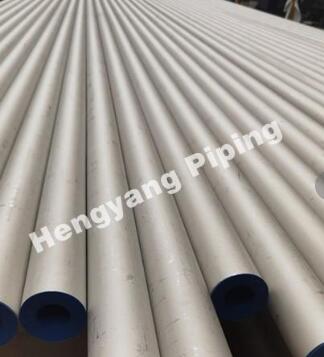Jun. 26, 2023
Minerals & Metallurgy
Alloy steel and stainless steel are two distinct materials that serve different purposes and offer unique properties. To determine which is better, it depends on the specific application and the desired characteristics required. Let's explore the characteristics of both alloy steel and stainless steel to understand their strengths and applications.
Alloy Steel: Alloy steel is a type of steel that incorporates various elements to enhance its mechanical properties. It is known for its exceptional strength, hardness, and durability. By adding elements such as manganese, nickel, chromium, or molybdenum, alloy steel can be customized to meet specific requirements. Here are some key features of alloy steel:
Strength and Toughness: Alloy steel exhibits excellent strength, making it ideal for applications that require high load-bearing capacities and resistance to wear and tear.
Versatility: Alloy steel can be tailored to suit a wide range of applications. It is commonly used in automotive parts, machinery components, construction equipment, and tools.
Heat Resistance: Certain alloy steels possess excellent heat resistance properties, making them suitable for high-temperature environments such as turbines, boilers, and power generation equipment.
Cost: Alloy steel tube can offer a cost-effective solution compared to some other high-performance materials, making it a preferred choice in various industries.

Stainless Steel: Stainless steel, on the other hand, is a type of steel that contains a minimum of 10.5% chromium. This chromium content forms a protective layer on the surface, known as a passive film, which provides stainless steel with its unique properties. Here are some notable characteristics of stainless steel:
Corrosion Resistance: Stainless steel is highly resistant to corrosion, making it suitable for applications where exposure to moisture, chemicals, or harsh environments is expected. It is commonly used in kitchen appliances, medical instruments, and outdoor structures.
Hygiene and Sanitation: Due to its corrosion resistance and smooth surface, stainless steel is favored in industries that require strict hygiene standards, such as food processing, pharmaceuticals, and healthcare.
Aesthetic Appeal: Stainless steel offers a sleek and polished appearance, making it popular in architectural designs and decorative applications.
Ease of Maintenance: Stainless steel is relatively easy to clean and maintain, as it does not require painting or coating to protect its surface.
It's important to note that the superiority of alloy steel or stainless steel depends on the specific requirements of the application. For applications that demand high strength, toughness, and resistance to wear, Hengyang alloy steel may be the better choice. On the other hand, if corrosion resistance, hygiene, and aesthetic appeal are key factors, stainless steel may be more suitable.
Ultimately, the selection of the appropriate material should be based on a thorough understanding of the application's requirements, environmental conditions, and budgetary considerations. Consulting with materials engineers or specialists can provide valuable insights and help make an informed decision.
Previous: What is Alloy Steel Pipe Used For? A Comprehensive Guide
Next: What is a Low Fin Tube? Understanding its Significance in Heat Exchangers
If you are interested in sending in a Guest Blogger Submission,welcome to write for us!
All Comments ( 0 )